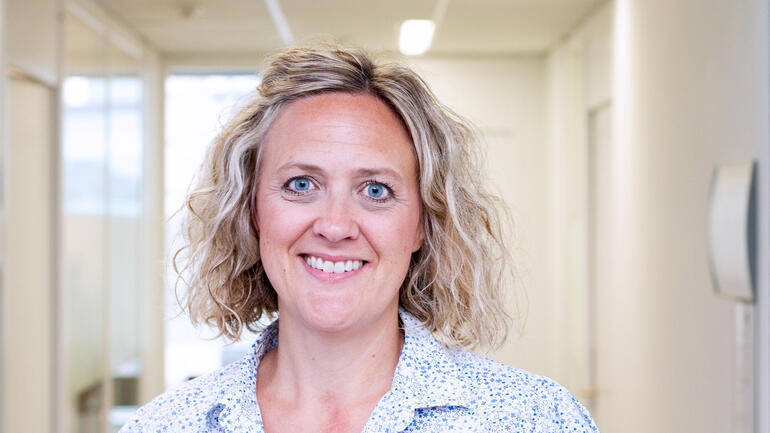Kirsten Røland Byermoen is defending her thesis for the degree philosophiae doctor (PhD) at the University of South-Eastern Norway.
She has completed the ph.d programme in Person-centred Health Care. The doctoral work has been carried out at the Faculty of Health and Social Sciences.
You are welcome to follow the trial lecture and the public defence on campus or Zoom.
Summary
This dissertation reveals that participants transitioned their physical assessment practices from having technically task-oriented actions to integrating them into holistic nursing care during patient interactions. They developed the ability to integrate and use various information sources in their clinical reasoning process when deciding which assessments to apply. As nurses, they internalized specific physical assessment skills as a prerequisite for providing person-centred fundamental care. Contextual and organizational factors influenced their use and further development of competence in physical assessment application within clinical settings.
Competent use of physical assessment is needed to detect deterioration and initiate interventions to prevent complications from occurring. Previous research has indicated that nursing students and nurses do not perform the learned physical assessment curriculum from the education in their daily practice. Barriers are complex and multifaceted, including contextual differences, lack of time, absence of role models, and high workload. However, little is known about the underlying thought and evaluation processes guiding the learning and application of physical assessment among nursing students and newly graduated nurses.
Through three sub-studies, the same participants were followed from their final educational year to two years as newly graduated nurses. The dissertation illustrates that developing competence in physical assessment is a complex learning process that necessitates a focus on pedagogical learning processes both in education and the clinical field.
The findings also indicate that close collaboration between educational institutions and the clinical environment would enhance nursing students’ and newly graduated nurses’ further physical assessment use and development.

